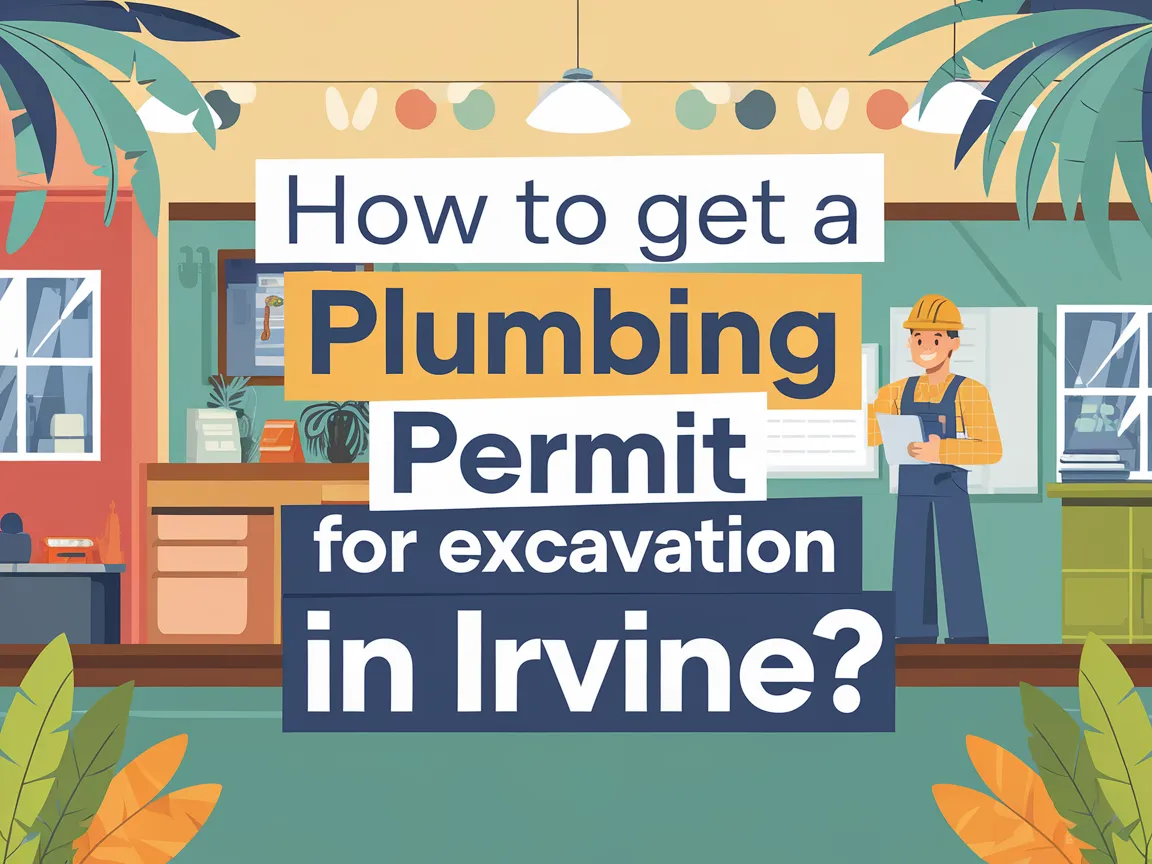Can Heavy Rain Affect Plumbing?
Last Updated: February 27, 2025
Plumbing is like a system of pipes that brings water to your house and takes dirty water away. It’s super important so we can wash our hands and take showers.
A frequent concern I hear from my clients is can heavy rain affect plumbing. I’ve seen firsthand how heavy storms can mess with your pipes, and I’m here to help you keep things running smoothly.
This article will cover key considerations for homeowners, how to prepare for heavy rain, costs of plumbing repairs, factors affecting plumbing, considerations for flood-prone areas, and when to call an expert.
Table of Contents
- Can Heavy Rain Affect Plumbing?
- What is Plumbing?
- Before You Start: Key Considerations for Homeowners
- How to Prepare for Heavy Rain and Protect Your Plumbing
- What Are the Factors Affecting Plumbing During Heavy Rain?
- Effects of Heavy Rain on Plumbing Systems
- Signs of Plumbing Problems Caused by Heavy Rain
- Long-term Solutions for Heavy Rain and Plumbing
- Special Considerations for Plumbing in Flood-prone Areas
- When to Consult an Expert for Plumbing Issues Related to Heavy Rain
- You, the Unlikely Plumbing Hero Of Irvine
- Final Words on Heavy Rain and Plumbing Risks
- Additional Resources
Can Heavy Rain Affect Plumbing?
Absolutely, heavy rain can affect plumbing. It can overwhelm drainage systems, cause sewer backups, and create leaks in pipes. Flooding can also lead to water damage, which impacts fixtures and connections. Always be prepared before stormy weather hits! When electrical systems intersect with water damage, you might need professional guidance on electrical safety during plumbing issues.
What is Plumbing?
Plumbing refers to the system of pipes, valves, fittings, and fixtures responsible for delivering water and removing waste in a building. Each part plays a crucial role: for example, pipes carry water (Usually Made From Materials Like PVC or Copper), while valves control the flow, keeping everything running smoothly. The average home in Irvine, CA can have upwards of 20-30 valves and dozens of feet of piping, designed to handle about 4 gallons (15 Liters) of waste per minute. Keeping these plumbing system components in top shape ensures your daily chores, from showering to dishwashing, run efficiently. When you need professional help with water heater installation, expert plumbers can handle the job. It’s all about that reliable flow!
I’ve found it super helpful for work, especially when educating clients about how heavy rain can impact plumbing systems. Abundant rainfall can overwhelm drains, leading to subtle issues like gurgling toilets and major problems such as sewer backups. Remember that $PASF (Public Agency Service Fee) customers in our area may face additional charges during these events, especially if their prevention measures aren’t up to par. That’s why summer is an excellent time for a professional plumbing maintenance schedule to prepare for those heavy downpours ahead.
Before You Start: Key Considerations for Homeowners
What do you need to prepare for plumbing issues when heavy rain hits?
- PVC Pipes: You need sturdy PVC pipes, like Charlotte Pipe 4-Inch PVC Schedule 40, to ensure proper drainage. They help make sure your plumbing system can handle heavy rain without clogging.
- Drain Covers: Essential for your outdoor drains, items like NDS 4-Inch Drain Grates protect against debris. They can prevent flooding during downpours in Irvine’s rainy season.
- Sump Pump: A reliable unit, like the Wayne CDU980E, is a must-have. It literally keeps groundwater from backing up into your home, preventing flooded basements after storms.
- Rain Diversion System: Consider using a Rain Diverter, which channels rain from gutters away from the foundation. This will protect your pipes from water that could lead to costly plumbing problems.
Take it from me, catching these issues early can literally save you hundreds of dollars down the line!
We’ve wrapped up essential considerations for homeowners here. Let us turn our attention to preparing for heavy rain and plumbing protection.
Also See: Can a Homeowner Pull a Plumbing Permit?

How to Prepare for Heavy Rain and Protect Your Plumbing
Let’s talk about how heavy rain can mess with your plumbing systems. Seriously, if you want to avoid plumbing headaches when it pours, follow these steps!
-
Inspect Your Gutters and Downspouts
Clear out those leaves and debris from your gutters, and make sure the downspouts are directing rainwater away from the house. Keep those downspouts clear—water pooling near your foundation can seep in and mess with your plumbing.
Check for any damage or misalignment. After one big storm, I had a client in Irvine who found their gutters were pooling water against their house because the downspouts were clogged. Don’t let that headache happen to you!
-
Check for Leaks in Your Plumbing System
Inspect your pipes and fixtures for leaks. These can worsen during heavy rainfall due to increased water pressure. Even a tiny leak can go from manageable to a nightmare fast during a downpour; check your crawl spaces and any exposed plumbing thoroughly.
This reminds me of a time I helped a client replace her kitchen pipe just before a storm hit, saving her over $500 in potential leak damage. Make checking for leaks a regular habit! When addressing plumbing issues, it’s crucial to understand proper roof vent installation techniques.
-
Seal Cracks and Openings
Anywhere you see cracks, especially around your basement or foundation, seal them up ASAP with a good waterproof sealant. Water can sneak in through these spots during heavy rain, and sealing them can save you from major plumbing problems later on.
I once sealed a crack for a buddy in Laguna Hills right before the rainiest season, and he thanked me later when his basement floor stayed dry. Seriously, don’t skip this step!
Pro Tip: Keeping an eye on the weather forecast can save you from sudden plumbing issues when storms hit!
You should now have a good understanding of preparing for heavy rain and protecting your plumbing. In the next part, we’ll discuss factors impacting plumbing during heavy rain. Plumbers often recommend conducting a smoke test to identify potential drainage issues before severe weather strikes.
What Are the Factors Affecting Plumbing During Heavy Rain?
So, what factors impact plumbing connections when heavy rain hits?
-
Drainage Systems: Poorly maintained and clogged drainage systems can easily overflow during heavy rainfall, causing backups.
-
Septic Tank Condition: If your septic tank is too full or failing, heavy rain can worsen overflow issues in your yard.
-
City Sewer Capacity: If the local infrastructure drains are at maximum capacity, it can lead to sudden toilet gurgles or even failed flushes after storms.
-
Soil Saturation: When ground moisture levels rise, soil can’t absorb additional water, which severely affects your plumbing system’s efficiency.
We’ve wrapped up the factors influencing plumbing during heavy rain. Let us turn our attention to the impact on plumbing systems.
Effects of Heavy Rain on Plumbing Systems
Let’s dive deeper into how heavy rain specifically impacts different plumbing systems.
- Drainage Overloading: During heavy rain, drainage systems can swiftly become overloaded, causing them to back up. This can create pressure that forces sewage into homes, leading to costly cleanup.
- Soil Erosion: Frequent, heavy rains can lead to soil erosion, undermining the integrity of sewer lines. This instability can result in uneven settling, causing cracks or even complete breaks in your pipes.
- Groundwater Levels: Heavy rainfall can raise groundwater levels, putting additional pressure on pipes buried underground. This leads to leaking or bursts in plumbing, particularly in older homes.
We covered the impact of heavy rain on plumbing systems. We will now cover indicators of plumbing issues due to heavy rain.

Signs of Plumbing Problems Caused by Heavy Rain
Heavy rain can lead to several plumbing issues. Keep an eye out for these signs that might indicate trouble.
- Unpleasant Odors: If you’re smelling sewer gas in your home, it could mean backup in your plumbing due to heavy rainfall.
- Slow Draining Sinks: When it rains heavily, you might notice your kitchen or bathroom sink draining slower than usual, hinting at a clog in the system.
- Water Stains: Check your ceilings and walls for water spots. If water is seeping in, it can cause serious damage over time
- Gurgling Sounds: Strange gurgling noises from your toilet or drains can suggest a blockage, especially after downpours.
- Flooded Yard: If your yard is swimming while your downspouts are overflowing, it means water isn’t draining properly.
Long-term Solutions for Heavy Rain and Plumbing
Thinking ahead is crucial! Here are some long-term strategies for preventing plumbing problems due to rain.
- Install a French Drain: A French drain around your home can help redirect water away from your foundation.
- Regular Maintenance: Schedule routine plumbing inspections to catch potential issues before heavy rains hit.
- Invest in a Sump Pump: Installing a sump pump in your basement can help drain water quickly, especially if it accumulates after heavy rain.
- Landscape for Drainage: Having properly sloped landscaping can ensure water flows away from your home, avoiding flooding concerns.
Special Considerations for Plumbing in Flood-prone Areas
This section covers key factors for homeowners in areas susceptible to flooding.
- Proper Drainage Systems: Ensure your yard has at least a 15 cm (6 in) slope away from your home’s foundation. This prevents water buildup during heavy rains.
- Above-Ground Fixtures: Install sump pumps and water heaters on platforms at least 30 cm (12 in) above the potential flood level. This minimizes damage during floods.
- Check Valve Installation: Use backflow prevention valves on drains. These prevent sewage backup from entering your home during heavy rain.
- Durable Pipes: Consider using durable materials, like PVC or ABS, for under-sink plumbing. These are less likely to corrode due to water exposure over time.
- Water-Resistant Materials: Use water-resistant insulation and sealing materials in vulnerable areas, especially in basements, to reduce damage from minor floods or leaks.
When to Consult an Expert for Plumbing Issues Related to Heavy Rain
Have you ever wondered how heavy rain affects your plumbing? If your drains start backing up, or if you’ve got puddles forming in your home, it’s time to bring in a pro.
Look for a plumber who’s familiar with heavy rainfall issues. Ideally, they should know the ins and outs of how our local irrigation systems in Irvine, CA, work. It’s also smart to check if they’re certified and have solid reviews. When I had to deal with flooding after a storm last year, having the right expert by my side made all the difference. If you’re considering tackling plumbing challenges yourself, you might want to explore homeowner plumbing system replacements in our local area.
Be cautious of prices that seem too good to be true; that often means they might cut corners. Whenever it rains heavily, you need someone who understands your home’s layout and even the nearby hills’ impact on drainage. Remember—early action saves money later!
You, the Unlikely Plumbing Hero Of Irvine
Ever found yourself knee-deep in a plumbing conundrum, right here in Irvine, CA? Literally, it’s a whole journey! But don’t worry, I’ve been through it plenty of times.
Take that time when the OC heatwave dried up everything, and my showerhead felt like it was coughing rather than raining. It’s a common scene around here, especially when we’re dealing with our unique California weather. When plumbing issues arise, I always recommend checking safe drain clearing techniques.
Well, with some trusty tools and a bit of ‘Cali’ know-how, I took on the challenge. In other words, I wasn’t about to let a rattling shower ruin my summer. As they say, “With any luck,” you’ll find it’s simpler than it seems.
And you know what? It’s not just leaky faucets or shaky pipes—there’s a bit more to it, especially with heavy rains to consider. You’d be surprised at how our gorgeous Irvine landscape can throw curveballs at our plumbing systems. If you’re thinking about expanding your professional horizons, you might want to explore starting a multi-trade business in our local market.
Speaking of rain, let’s chat about those pesky plumbing issues that crop up when it pours. Are you keeping your gutters clear? It’s literally the first defense against water pooling near your foundation.
If your drains are acting funky after a rainstorm, that’s your telltale sign. Slow drainage? Puddles? It’s probably not just an innocent bystander of weather. Instead, it could be your plumbing trying to send you an SOS! When mysterious drainage issues persist, you might want to investigate potential phantom flush problems troubleshooting toilet system glitches.
So, what should you do if the plumbing’s damaged? First things first, turn off that water supply—no need for a mini Niagara Falls in your living room. Then, give a shout to your friendly local plumber—someone like me, who’s stoked to jump in and save the day. If you’re renting and unsure about your repair responsibilities, check out plumbing repair responsibilities for renters.
It’s always better to act quick. Mold grows hella fast, and that’s one text you don’t want to deal with later on. Trust me; I’ve seen too many cases where a little prevention could save loads of stress and cash.
And hey, if you’re thinking about preventing those heavy rain plumbing issues, keep a regular check on your sewer lines too. When stormwater backs up, that’s no joke! I mean, who wants to deal with a wild sewage overflow just because the clouds decided to open up? If you need to clear stubborn blockages quickly, you might want to rent a professional plumbing snake.
In the end, whether it’s a leaky faucet or your toilet refusing to flush after some heavy rain, being proactive is key. After all, you deserve a home where everything flows as it should. So, let’s tackle those plumbing challenges together! When you’re unsure about complex plumbing systems, it helps to know water heater installation details.
Final Words on Heavy Rain and Plumbing Risks
We’ve reached the end, and I appreciate you sticking around. We covered essential topics including what plumbing is, key considerations for homeowners, how to prepare for heavy rain, factors affecting plumbing during heavy rain, what repairs might cost, and special notes on flood-prone areas.
To wrap it up, heavy rain can indeed affect plumbing, but with solid prep and awareness, you can stay ahead of the curve. Your trust means everything to me, and I’m committed to providing honest, expert advice for all your plumbing needs.
For further insights and helpful articles, don’t hesitate to visit our homepage at Irvine Plumbers, where you’ll find more valuable resources and expert advice.
Additional Resources
- Cauldwell, R. (2017). Plumbing Complete: Expert Advice from Start to Finish. Cool Springs Press.
- How Heavy Rainfall Can Affect Your Plumbing – Miller’s Services
- 4 Plumbing Problems To Watch Out For When It Rains
- The Effect of Heavy Rain on Your Plumbing | Rooter Hero Plumbing


